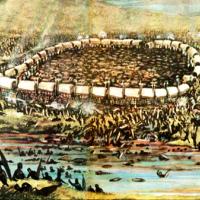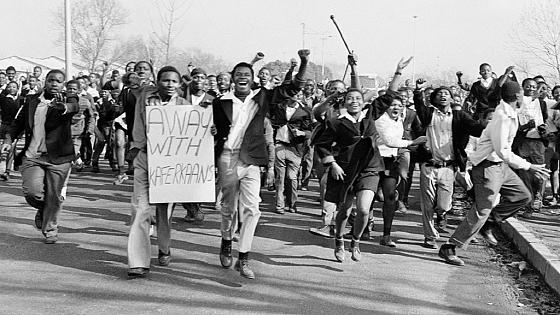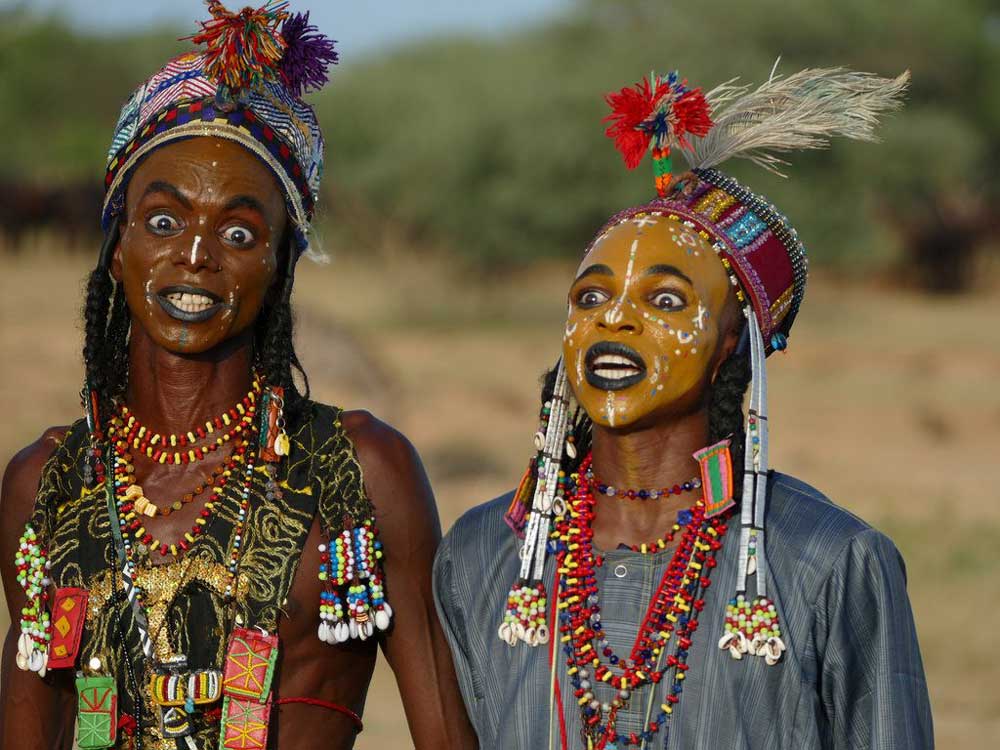South Africa: Celebrate Life with Every Festival

Introduction to Celebrations, Holidays, and Cultural Festivals in South Africa
Overview of the diverse celebrations and festivals in South Africa
As you explore South Africa, you will encounter a rich tapestry of celebrations, holidays, and cultural festivals that reflect the country's diverse traditions and heritage. From vibrant street parades to solemn religious observances, the calendar is filled with events that showcase the unique customs of the various ethnic groups that call South Africa home. Each region boasts its own festivities, offering a glimpse into the multicultural mosaic that defines the nation.
Significance of cultural festivities in South African society
During these celebrations, South Africans unite to honour their history, express their identity, and foster unity among different communities. Whether commemorating historical milestones, paying tribute to ancestors, or simply revelling in the joys of life, these cultural festivals play a crucial role in strengthening social bonds and preserving heritage.
Through music, dance, food, and rituals, individuals connect with their roots and pass down age-old traditions to future generations. In a country marked by its complex past, these festivities serve as a testament to resilience, cultural pride, and the enduring spirit of the South African people.

Heritage Day
History and Significance of Heritage Day in South Africa
Heritage Day in South Africa, celebrated on September 24th, holds immense importance as it serves to honour the diverse cultural heritage and traditions of the nation. Originally known as Shaka Day, this public holiday was renamed Heritage Day in 1996 to embrace all South Africans' cultural wealth and unity. It symbolizes a collective acknowledgement of the country's past and aims to promote understanding and respect among its people.
Traditional foods and activities during Heritage Day celebrations
During Heritage Day celebrations, South Africans across the country partake in various traditional activities and savor authentic dishes that reflect their cultural backgrounds. Here is a comparison table of some traditional foods and activities during Heritage Day celebrations:
| Traditional Foods | Traditional Activities |
|---|---|
| Braai (Barbecue) | Traditional song and dance performances |
| Pap and Chakalaka | Arts and crafts exhibitions |
| Bobotie | Storytelling sessions |
By engaging in these customs and sharing meals, people strengthen their bonds and celebrate the unique flavours and talents that make up the nation's vibrant tapestry of cultures. Heritage Day thus stands as a testament to the rich diversity and shared history that define South Africa's social fabric.

Day of Reconciliation
Background and historical importance of the Day of Reconciliation
On the Day of Reconciliation in South Africa, which falls on December 16th each year, the nation commemorates and reflects on the journey towards unity and inclusivity. Originally known as the Day of the Vow, this public holiday was renamed in 1994 to emphasize the importance of reconciliation and healing past divisions. It marks the anniversary of the Battle of Blood River in 1838 and the establishment of the South African Truth and Reconciliation Commission in 1995, showcasing a pivotal shift towards unity and understanding.
Unity and peace efforts symbolized in the celebrations
The Day of Reconciliation is a time for South Africans to unite and engage in activities promoting peace, forgiveness, and understanding. It serves as a unifying force, encouraging people to set aside differences and work towards a harmonious future. Here is a comparison table illustrating the unity and peace efforts symbolized in the Day of Reconciliation celebrations:
| Unity Efforts | Peace Symbolism |
|---|---|
| Interfaith dialogues | Dove releases symbolizing peace |
| Community service projects | Candlelight vigils for remembrance |
| Public discussions on reconciliation | Tree planting ceremonies for growth |
By participating in these activities and commemorating the day, individuals contribute to the ongoing journey of healing and forging a united South Africa. It is a day that honours resilience, forgiveness, and the pursuit of a shared future built on mutual respect.

Freedom Day
Commemorating South Africa's first democratic elections
On Freedom Day in South Africa, observed on April 27th each year, the nation reflects on the historic milestone of the first democratic elections held in 1994. This important day symbolizes the end of apartheid and the beginning of a new era of freedom and equality for all South Africans. It serves as a reminder of the hard-fought struggle for democracy and the significance of unity in overcoming oppression and injustice.
Cultural events and festivals held on Freedom Day
Freedom Day celebrations across South Africa are marked by a rich tapestry of cultural events and festivals that showcase the diversity and heritage of the nation. From music and dance performances to art exhibitions and food festivals, communities celebrate their freedom and express their unique identities. Here is a comparison table illustrating the cultural events and festivals held on Freedom Day:
| Cultural Events | Festivals |
|---|---|
| Traditional dances | Heritage food fairs |
| Art exhibitions | Music concerts |
| Drumming circles | Craft markets |
Participating in these events not only honours the journey towards democracy but also fosters a sense of unity and pride in South Africa's cultural richness. Freedom Day serves as a reminder of the progress made and the ongoing commitment to upholding the values of freedom, equality, and diversity.

Youth Day
Remembering the Soweto Uprising and honoring the youth
Youth Day in South Africa, commemorated on June 16th each year, pays tribute to the Soweto Uprising 1976. This significant event marked a turning point in the country's struggle against apartheid, as students protested against the introduction of Afrikaans as a medium of instruction in schools. The day is a reminder of the bravery and resilience of the youth who stood up against injustice, inspiring future generations to advocate for change and social justice.
Youth empowerment initiatives and educational programs on Youth Day
Youth Day is an opportunity to highlight the importance of education and empowerment for young people in South Africa. This day, various initiatives and programs are organized to support youth development, including workshops, seminars, and mentorship programs. These efforts focus on equipping the youth with the skills and knowledge needed to create a better future for themselves and their communities. By investing in the education and empowerment of young people, South Africa aims to build a more inclusive and prosperous society for all.

Christmas in South Africa
Uniquely South African Christmas traditions and celebrations
Christmas in South Africa is a special time marked by a blend of traditional and modern celebrations. Families often gather for festive meals and exchange gifts as a symbol of love and gratitude. In many communities, Christmas is also a time for sharing with those less fortunate through charitable activities and giving back to the community. Churches play a significant role in the celebrations, with services and events bringing people together to celebrate the season's spirit.
Holiday foods, music, and decorations during Christmas in South Africa
During Christmas in South Africa, traditional holiday foods take centre stage. Braaied meats, seafood dishes, and festive desserts like malva pudding and koeksisters are popular choices for Christmas meals. Christmas carols fill the air, with traditional South African songs adding a unique touch to the festive atmosphere. Decorations such as Christmas trees, lights, and colourful ornaments are used to create a joyful and welcoming ambience in homes and public spaces.

Easter Celebrations
Religious and cultural significance of Easter in South Africa
Easter in South Africa holds great importance as it symbolizes the resurrection of Jesus Christ and is a time for reflection and spiritual renewal for many. It combines religious traditions brought by European settlers and indigenous African customs, creating a unique blend of celebrations. The holiday signifies hope, forgiveness, and new beginnings, with many churches holding special services and events to commemorate this sacred time.
Easter traditions, events, and activities across the country
Across South Africa, Easter is celebrated with various traditions and events that reflect the country's diverse cultural landscape. Families often come together for traditional Easter meals, including pickled fish, hot cross buns, and chocolate eggs. Many communities also participate in Easter egg hunts, Easter parades, and religious processions that mark the solemnity and festivity of the season. Decorations such as Easter lilies, colourful ribbons, and wreaths adorn homes and churches, adding to the festive spirit of the occasion.

Durban July Horse Racing Festival
Overview of the prestigious Durban July horse racing event
The Durban July horse racing festival is a prestigious South African event that attracts local and international attention. Held annually at Greyville Racecourse in Durban, this race day is known for its high-stakes racing, glamorous fashion, and lively social atmosphere. The main event is the Durban July Handicap, a thoroughbred horse race that showcases the finest horses and jockeys from around the country.
Fashion, entertainment, and social gatherings at the Durban July
Aside from the thrilling horse races, the Durban July is also a major social event filled with fashion, entertainment, and excitement. Attendees dress to impress, showcasing their style and creativity in carefully planned outfits that adhere to the event's theme. Fashion plays a significant role in the festivities, with competitions for the best-dressed attendees adding glamour to the day.
In addition to the races, guests can enjoy live music, delicious food, and various entertainment options throughout the venue, making it a day of fun and enjoyment for all.
